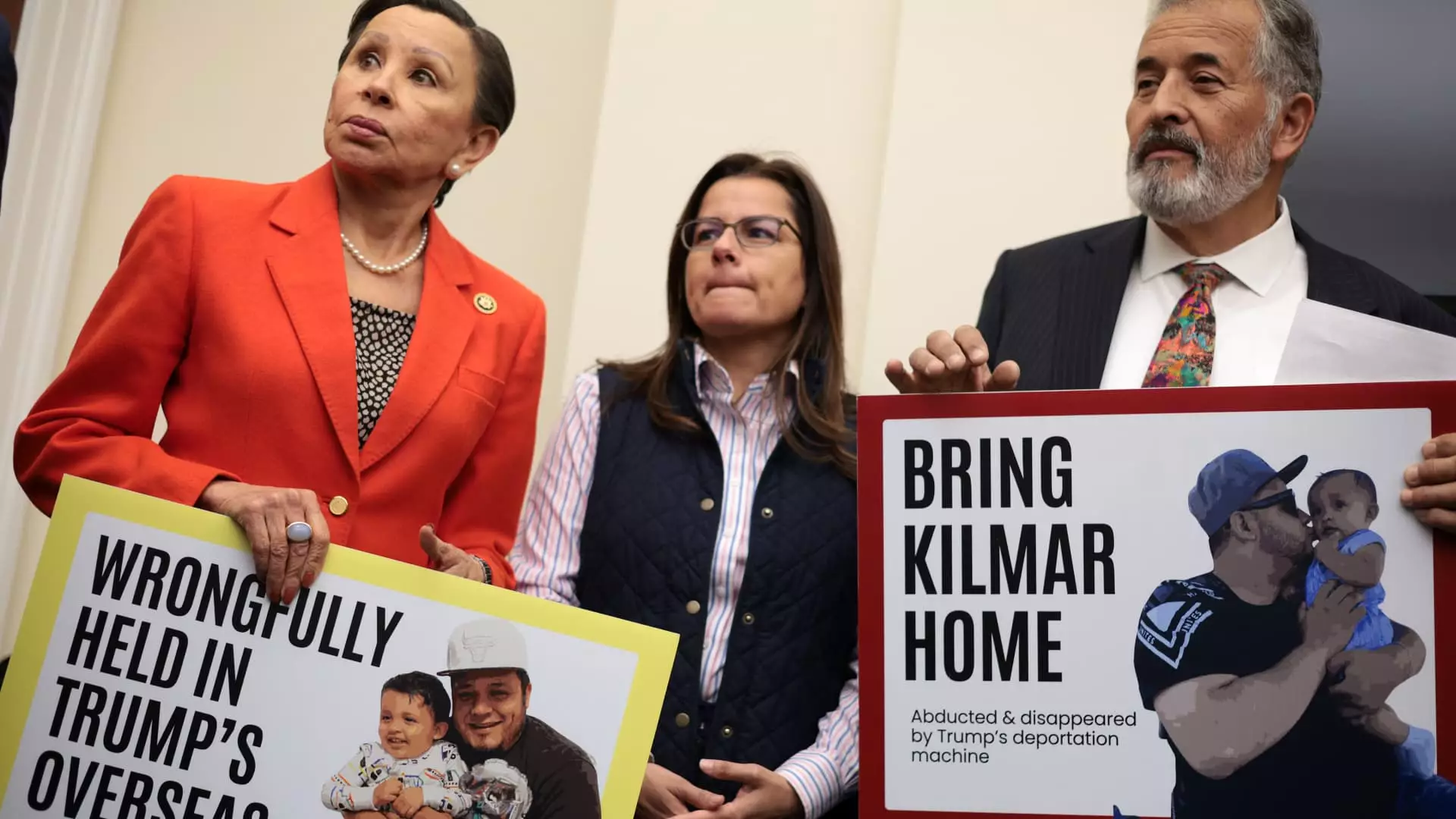As a nation rooted in the principle of justice, recent events surrounding the wrongful deportation of Kilmar Abrego Garcia to El Salvador have ignited a firestorm of ethical and legal debates. U.S. District Judge Paula Xinis’s recent demands for transparency from the Trump administration reflect a crucial struggle between the judicial and executive branches, revealing not only procedural irregularities but also a disconcerting reluctance from government authorities to uphold their responsibilities. This case exemplifies an alarming trend: the erosion of judicial authority in the face of executive overreach.
The core of the issue lies in the clear evidence that the administration has failed to act in accordance with judicial directives. Despite Judge Xinis’s insistence on obtaining daily updates regarding efforts to facilitate Garcia’s return—a right preserved by previous court orders—government officials presented a stonewalling approach, offering no substantial evidence of compliance. It is troubling to witness an administration seemingly unconcerned with judicial mandates, a situation that raises questions about accountability and the foundational checks and balances that govern our democracy.
The Cost of Political Gamesmanship
The tragic case of Kilmar Abrego Garcia is not merely an isolated incident; it is emblematic of a larger conflict involving political theatrics at the expense of human dignity. When Judge Xinis chastised the administration for its lack of action by stating, “To date, what the record shows is that nothing has been done,” she was calling attention to a critical failure—a government choosing gamesmanship over human rights. This alarming failure becomes more pronounced when one considers the anguish felt by Garcia’s family, particularly his wife, Jennifer Vasquez Sura, who publicly implored both the Trump administration and the Salvadoran government to cease their political maneuvering.
Are we, as a society, comfortable with the notion that human lives are treated as pawns in a political chess game? The emotional toll on families like the Abrego Garcias is immense, highlighting the human cost of bureaucratic indifference. The persistence of the Trump administration in refusing to ask for Garcia’s return, as indicated by the judge’s characterization of its inaction as “stunning,” suggests an unsettling prioritization of foreign policy over individual rights.
An Administration at Odds with Accountability
Beyond the specific case of Abrego Garcia, the broader implications of the Trump administration’s approach to judicial decisions bear scrutiny. The collision between the executive branch and the judiciary is growing increasingly contentious, with officials openly accusing judges of overstepping their bounds. This framing undermines the autonomy that courts must maintain to prevent political influence from tainting the justice system. In President Trump’s world, foreign policy objectives seem to supersede not only domestic law but also moral considerations.
Consider Trump’s recent threats to strip Harvard University of its tax-exempt status for rejecting impermissible demands regarding pro-Palestinian protests. This behavior represents another facet of a concerted effort to undermine institutional integrity across the board. The legal community is getting caught in the crosshairs, facing pressure to comply with whims that defy traditional boundaries of governance. Recent actions against individual law firms with supposed ties to political opponents highlight a troubling atmosphere where fear, rather than justice, reigns.
The Uncertain Future of Due Process
In addition to the individual case of Garcia, broader legal principles are at stake as Trump’s administration pushes the boundaries of immigration enforcement under an antiquated legal framework. The invocation of the Alien Enemies Act—part of a procedural arsenal primarily designed for wartime—raises fundamental constitutional questions. When faced with oversteps by the executive branch, the judiciary is left with the daunting task of safeguarding not only due process but also the very ideals upon which this country was founded.
This precarious balance between executive power and judicial oversight underscores the importance of maintaining a resilient and independent judiciary. The judiciary’s role must remain intact as a bulwark against arbitrary government action, and we must support institutions dedicated to protecting the rights of all individuals. With Judge Xinis hinting at the possibility of depositions from key officials from the Department of Homeland Security and Immigration and Customs Enforcement by April, we approach a critical juncture in this legal battle—one that could either reaffirm the strength of our judicial safeguards or signal a retreat into unchecked executive authority.
The case of Kilmar Abrego Garcia ultimately serves as a reflection of societal values amidst a changing political landscape. Will we stand by as victims of bureaucratic neglect are left stranded in a game of political chess? Or will we assert our democratic principles in the face of a government that has seemingly lost touch with its foundational commitments? The choice is ours, and it is imperative that we choose wisely.


Leave a Reply